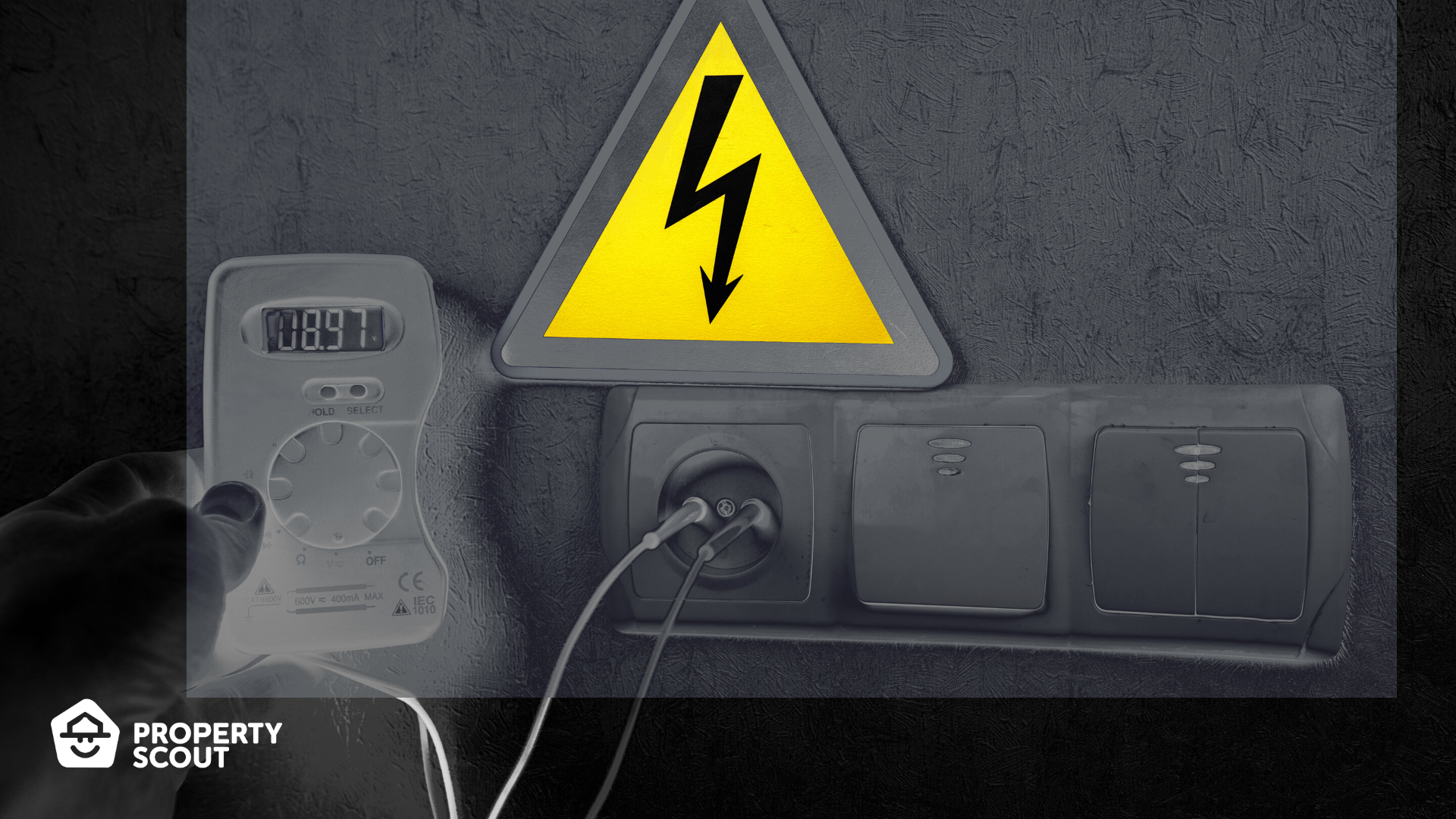In Short
Advice
Welcome to a shocking revelation! In this electrifying blog post, we delve into the world of electrical leakage, uncovering its causes, risks, and most importantly, the preventive measures you need to know. Electric shocks are not just hair-raising experiences; they pose real dangers to your safety and property. By unraveling the mysteries behind electrical leakage, we empower you to take proactive steps in safeguarding your home, loved ones, and yourself. From demystifying the culprits that lead to leakage, to highlighting the potential risks associated with it, we'll equip you with invaluable knowledge to zap the shock factor out of your life. Get ready to unmask the unseen, understand the risks, and master the art of prevention. Let's embark on this electrifying journey together!
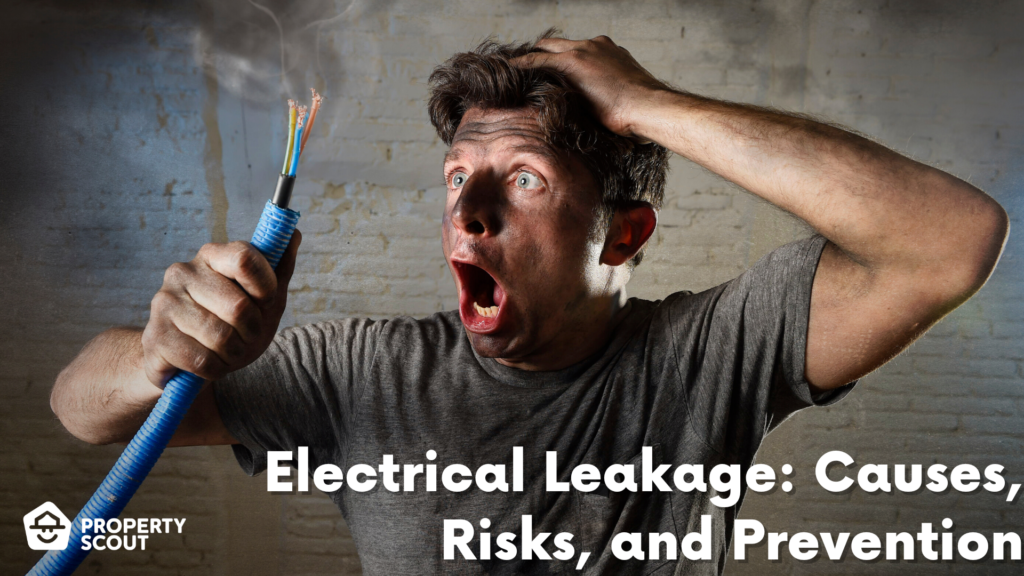
What is an electrical leakage?
"Electrical Leakage" is when electric current leaks out of a circuit and comes into contact with the surface of electrical wires or the metal parts of devices. If one accidentally comes into contact with it, it can pose a life-threatening risk. For instance, a shock may occur when touching a live wire or an electrical appliance experiencing leakage. This allows electric current to flow through the body and into the ground, disrupting the normal functioning of the heart. If the electrical current is strong enough, it can cause the heart to beat irregularly, potentially leading to cardiac arrest and fatality. There are various factors that contribute to the occurrence of electrical leakage, as outlined below.
Causes
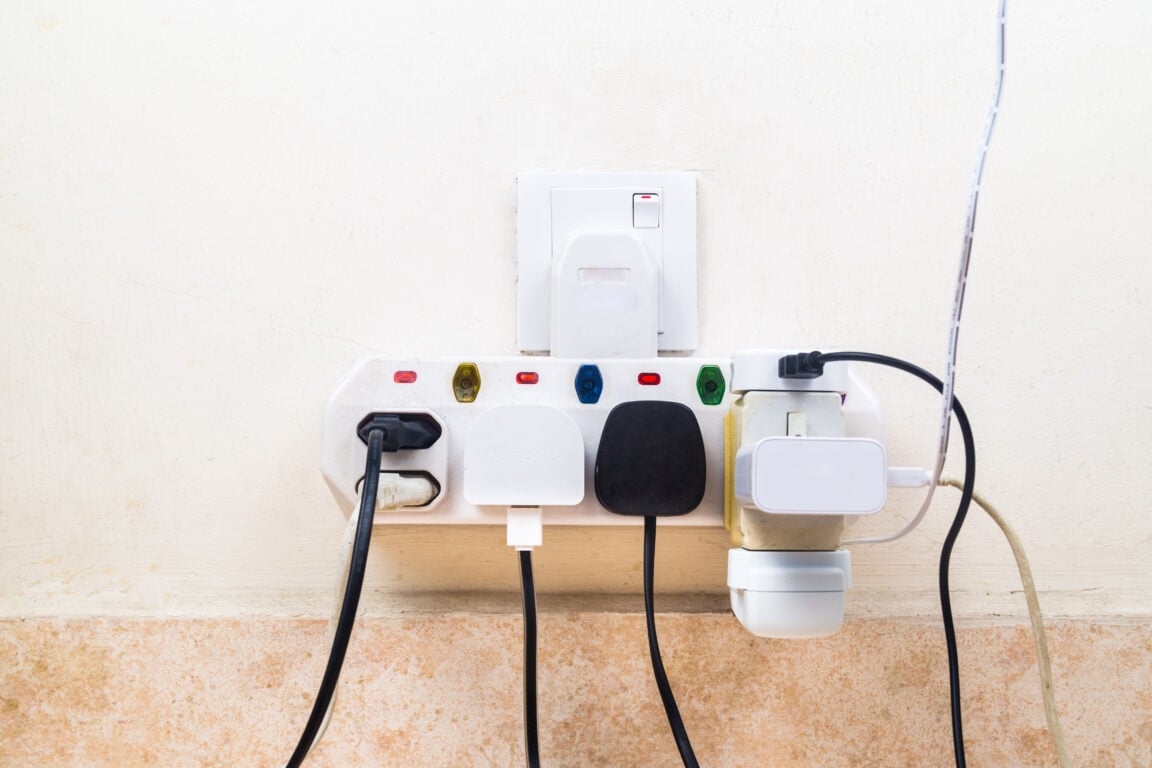
The primary cause of electrical leakage issues often stems from incorrect usage of electrical devices and various other factors, including:
- Leaving plugs inserted even when the electrical appliances are switched off, as the current continues to flow and may result in shocks and leakage.
- Deterioration of electrical equipment due to prolonged use without thorough inspections. When these devices are powered on, they can cause electrical current to leak. Common problem areas prone to leakage include damaged insulation on wires and components that have been compromised or damaged.
- Utilizing non-standardized electrical devices and improper wiring installations within the household. Over time, the consistent electrical voltage may cause these devices to malfunction and lead to leakage issues.
Susceptible Areas
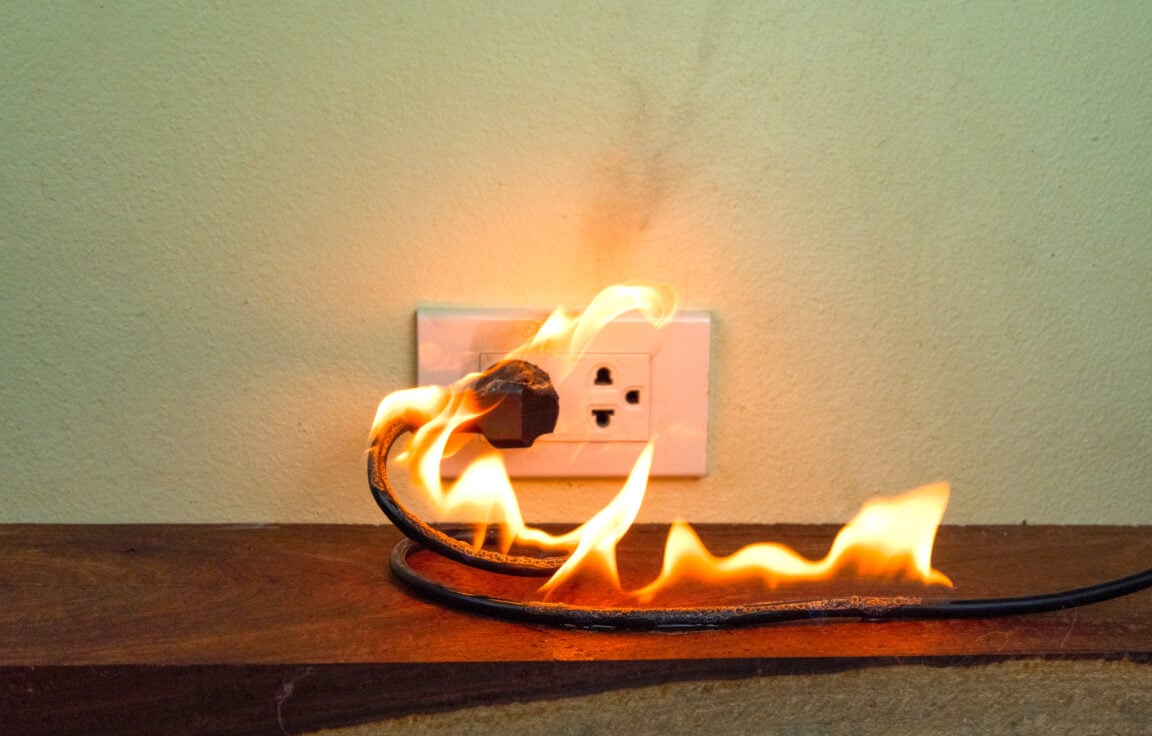
In the realm of electrical safety, certain areas carry a higher likelihood of electrical leakage. These spaces, often associated with continuous electrical usage, can be potential hazards if not properly addressed. Think of outlets accommodating long-term plugged-in appliances like refrigerators or extension cords. Moreover, exterior points of contact, including water pumps, electrical fences, outdoor lighting, and door handles, introduce additional risks, especially when exposed to water. As water is an effective conductor, it amplifies the danger of unintended electric shocks. Another critical vulnerability lies in aging electrical appliances and long-used power outlets, as deterioration increases the potential for leakage. Stay vigilant for any peculiarities, such as burn marks or discoloration on devices or outlets, as they may signify the presence of electrical leakage.
Checking for an electrical leakage

If you're uncertain whether electrical leakage is occurring in your home, don't worry. There's a straightforward method to check it out. Just take a look at your electricity meter. If you notice the meter spinning rapidly, despite not having an excessive number of electrical devices turned on, it could be a sign of electrical leakage in certain areas of your home. To investigate further and get more clarity, I recommend purchasing a voltage tester and conducting a simple check. It's a handy tool that will help you identify potential issues. Start by walking around your power outlets and various electrical appliances, using the voltage tester by gently touching its metal tip against the points of interest.
Using the voltage tester is easy. Just grip the insulated handle firmly and point the metal tip towards the target. For power outlets, touch the metal tip around the socket area. When it comes to electrical devices, gently touch the metal tip against the metal parts. Keep an eye out for any changes. If you notice a brighter light or illumination around the metal tip upon contact, it could indicate the presence of electrical leakage. By following these simple steps, you can gain valuable insights into the electrical safety of your home and take appropriate action if needed.
Solutions
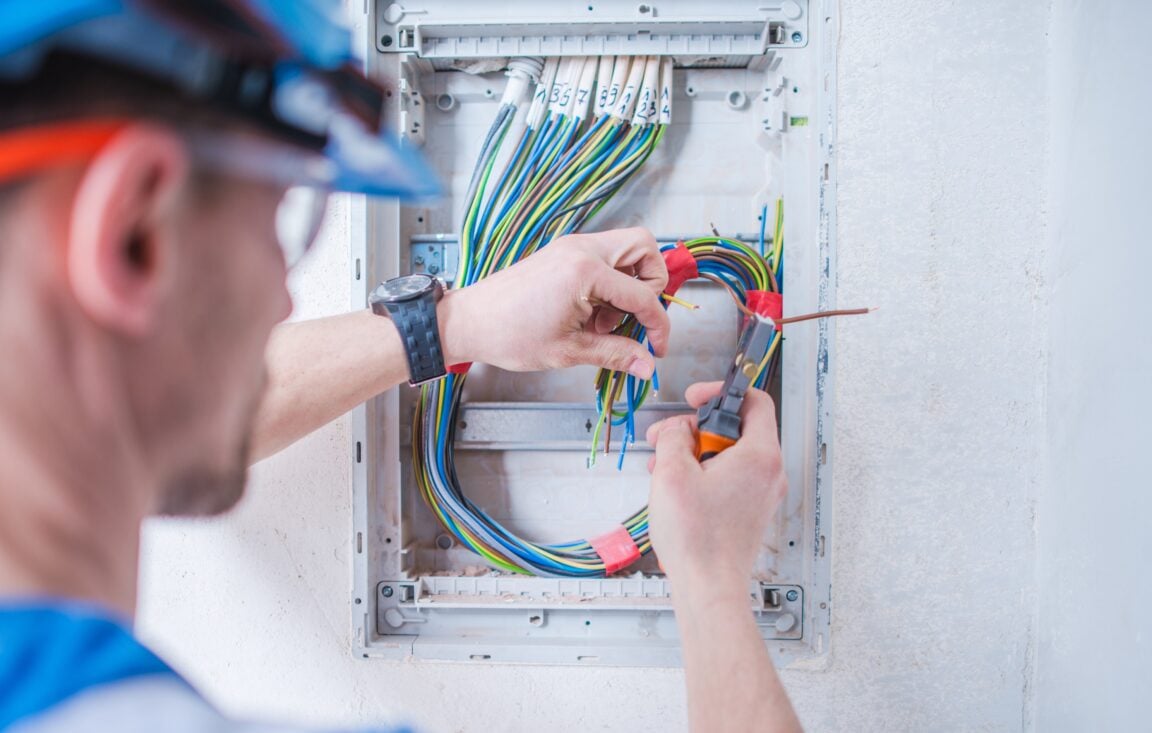
Once you have identified the specific areas or electrical devices experiencing electrical leakage, it is vital to prioritize the safety of everyone by keeping them away from those locations. If you possess knowledge and experience in electrical systems, you may consider attempting to repair the issue yourself. However, if you are uncertain or lack expertise in this field, it is strongly advised to seek the assistance of a professional electrician. Electrical matters should be handled by individuals who possess genuine knowledge and skills, as the potential risks involved can be extremely hazardous.
Once the repairs have been completed, it is crucial to have the electrician perform a thorough inspection of the electrical current to ensure that the repaired devices are functioning normally and operating safely. This step is of utmost importance in maintaining a safe environment and preventing any potential hazards that may arise. If any of the devices have been in use for a significant period, it is advisable to consider replacing them instead of attempting further repairs. Aging equipment has a higher likelihood of experiencing future electrical leakage incidents. By taking preventive measures before accidents occur, you can ensure the safety and well-being of your household.
Prevention
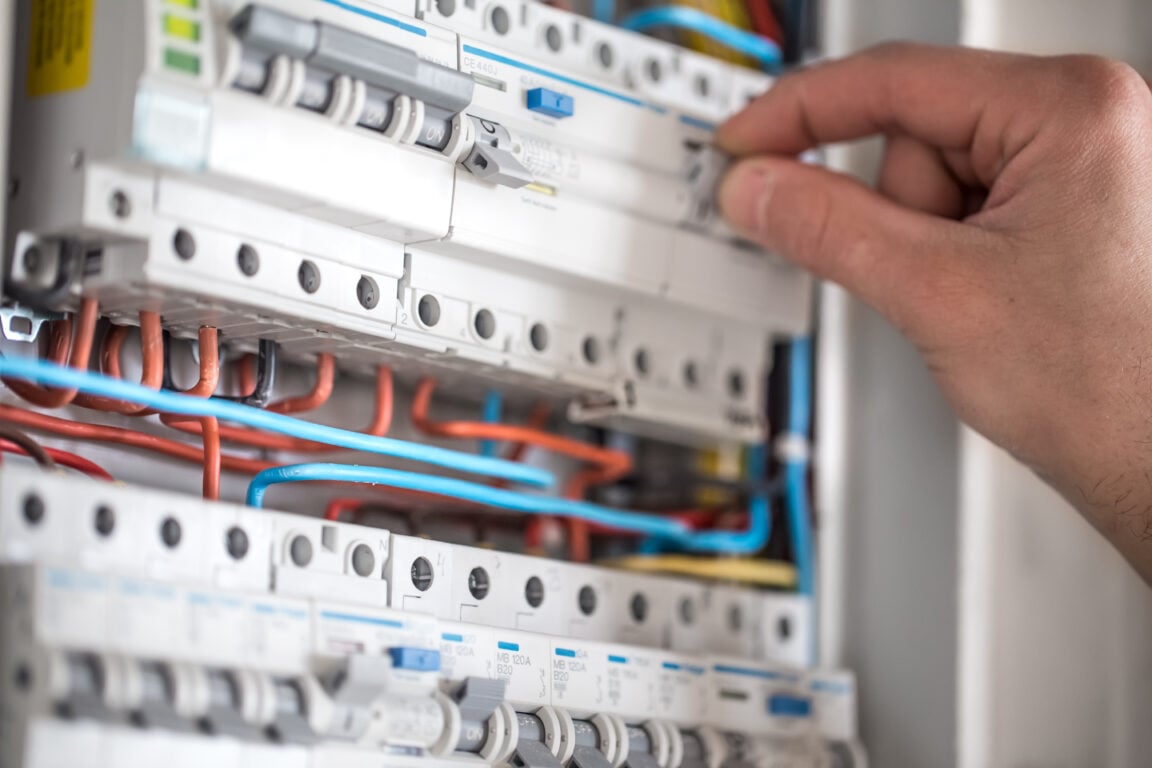
- Install a Ground Wire
Ensure the safety of your home by installing a ground wiring system during construction. This system, working with 3-pin power outlets and devices with 3-prong plugs, channels electrical leakage into the ground, protecting occupants from harm.
- Install a electrical leakage protection device
Ensure your safety by installing an electrical leakage protection device. This device acts as a quick and effective solution to cut off the power supply to your entire house in case of electrical faults or leakage.
Choosing the right device is crucial. It should have a current rating suitable for the electrical load in your home. If the rating is too low, it may not function properly during an actual leakage event. Conversely, a rating that is too high can cause damage. To cater to varying levels of humidity in different households, opt for a device with adjustable current settings.
The cutting-off time for the device should not exceed 0.04 seconds to provide swift protection. Additionally, it's essential to select a device that meets certified standards from relevant authorities. This ensures reliability and peace of mind, knowing that the device is approved for use in safeguarding against electrical leakage.
- Install electrical insulation sheets
If you're unsure about electrical leakage in your home, consider installing electrical insulation sheets. Rubber, plastic, or wooden sheets can be used as effective options. Place these sheets in the areas where you'll be conducting electrical checks to prevent any accidental contact. Should you discover any actual electrical leakage during your inspection, it's crucial to promptly contact a qualified electrician for assistance in resolving the issue.
Conclusion
In conclusion, understanding the causes, risks, and prevention of electrical leakage is paramount in ensuring the safety of your home and loved ones. By being aware of the potential dangers and taking proactive measures like installing electrical insulation sheets, utilizing voltage testers, and promptly seeking professional help, you can zap the shock factor out of your life. Remember, electrical safety is not something to be taken lightly, and a little knowledge and preventive action can go a long way in safeguarding your home from electrical hazards. So, stay informed, stay vigilant, and keep your home electrically secure for a brighter, safer future!
Find your ideal property, available for sale or rent in the best prices possible, or list your property for sale or rent here. Alternatively, if you have any further questions, please get in touch with us:
FAQs
Lorem ipsum dolor sit amet, consectetur adipiscing elit. Suspendisse varius enim in eros elementum tristique.
Explore More Topics
Free real estate resources and tips on how to capitalise
